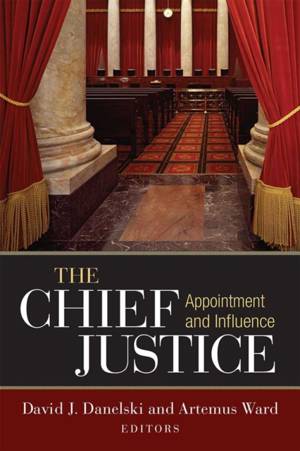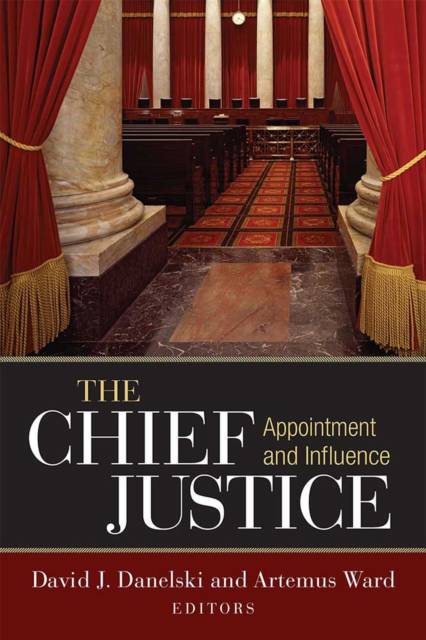
- Afhalen na 1 uur in een winkel met voorraad
- Gratis thuislevering in België vanaf € 30
- Ruim aanbod met 7 miljoen producten
- Afhalen na 1 uur in een winkel met voorraad
- Gratis thuislevering in België vanaf € 30
- Ruim aanbod met 7 miljoen producten
Zoeken
€ 129,45
+ 258 punten
Omschrijving
The Chief Justice brings together leading scholars of the courts who employ social science theory and research to explain the role of the Chief Justice of the U.S. Supreme Court. They consider the chief justice's appointment, office, powers, and influence both within the Court and in the American system of government more generally. The chief justice presides over oral arguments and the justices' private conferences. The chief justice speaks first in those conferences, presents cases and other matters to the other justices, and assigns the Court's opinions in all cases in which the chief justice votes with the majority. In addition, the chief justice presides over the Judicial Conference of the United States, a policy-making body composed of lower-court federal judges. As Chief Justice Charles Evans Hughes wrote, the Chief Justice of the U.S. Supreme Court is "the most important judicial officer in the world."
Specificaties
Betrokkenen
- Auteur(s):
- Uitgeverij:
Inhoud
- Aantal bladzijden:
- 464
- Taal:
- Engels
Eigenschappen
- Productcode (EAN):
- 9780472119912
- Verschijningsdatum:
- 5/08/2016
- Uitvoering:
- Hardcover
- Formaat:
- Genaaid
- Afmetingen:
- 157 mm x 231 mm
- Gewicht:
- 861 g

Alleen bij Standaard Boekhandel
+ 258 punten op je klantenkaart van Standaard Boekhandel
Beoordelingen
We publiceren alleen reviews die voldoen aan de voorwaarden voor reviews. Bekijk onze voorwaarden voor reviews.








